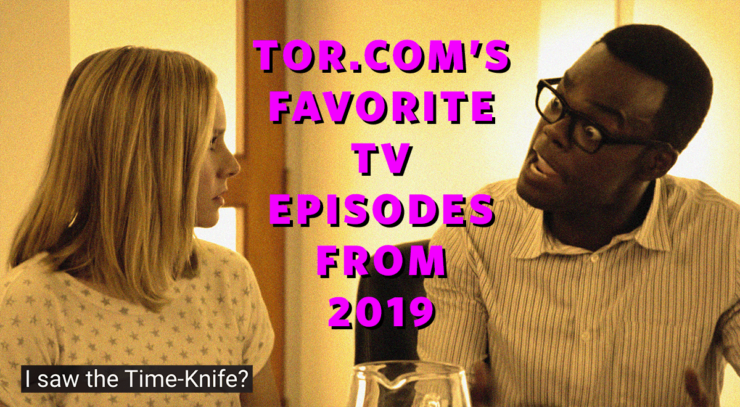There’s more and more television to choose from these days, but inevitably, some of its outstrips the rest. So we thought we’d highlight some of our favorite episodes this year, TV that really transcended or moved us more than we ever expected. Here are our picks…
Good Omens, “Hard Times”
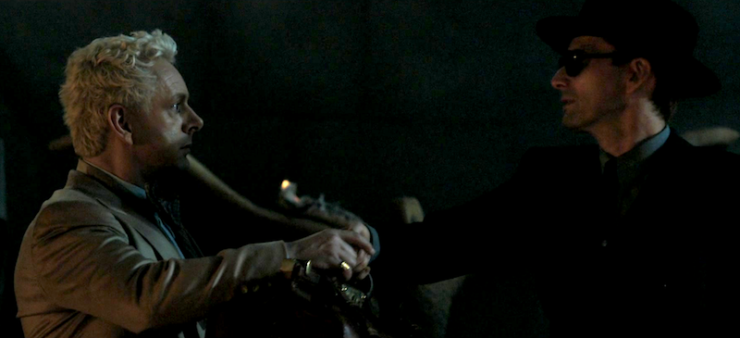
This show basically served as an antidepressant for me at the start of the summer, so I will take any and all opportunities to adore it, loudly and publicly. I will especially take the opportunity to note how singular the third episode was for choosing to do something unexpected: In midst of all the plotty plot, the cold open of “Hard Times” isn’t a quick lead-in to the credits, but a half hour devoted to The Love Story of Crowley and Aziraphale throughout the History of the World. Look, I’ve been a dearly devoted fan of Good Omens forever, and I’ve always been a Crowley/Aziraphale shipper. But seeing as there was nothing particularly overt about that relationship within the book, I never expected the television show to go all-in on the pairing. There was plenty of subtext from the first episode, and I kept telling myself to just be happy with that. And then this half hour occurred. My partner and I kept turning to stare at each other, mouths agape—was this really happening? Were we getting the romance we always dreamed of? As we watched Aziraphale stare in loving awe while Crowley lifted the angel’s unblemished books from the wreckage of a London church, it became all too clear…
…dear reader, we did. —Em
The Tick, “Blood and Cake”
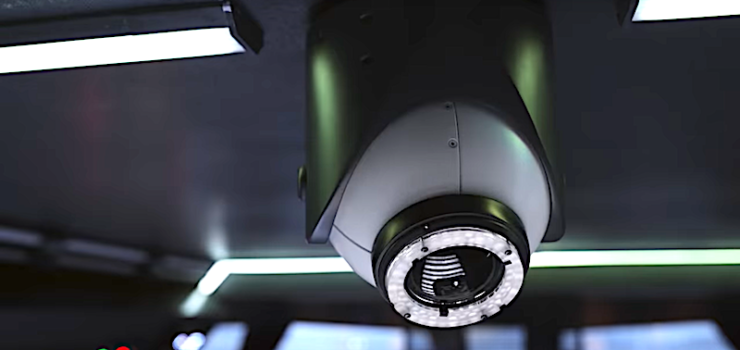
Once again, all of ’em. Seriously though, the second season of The Tick tells such a great cohesive story it makes for a perfect binge. If I have to pick one, though, I’ll go with “Blood and Cake.” I love bottle episodes. I especially love bottle episodes that have ridiculously high stakes, that feature people coming to grips with past trauma, and that resolve themselves with unexpected catharsis. This episode does all of that in a surprising way that gives real depth to Dangerboat, and also resolves the tension between him and Arthur. Which, this just shows you how amazing this show is, that it spends a whole episode giving depth to a sentient boat.
The sentient boat made me cry, OK? Is this what you need from me? What more will it take to make all of you stop reading and go watch this show? —Leah
The 100, “Adjustment Protocol”
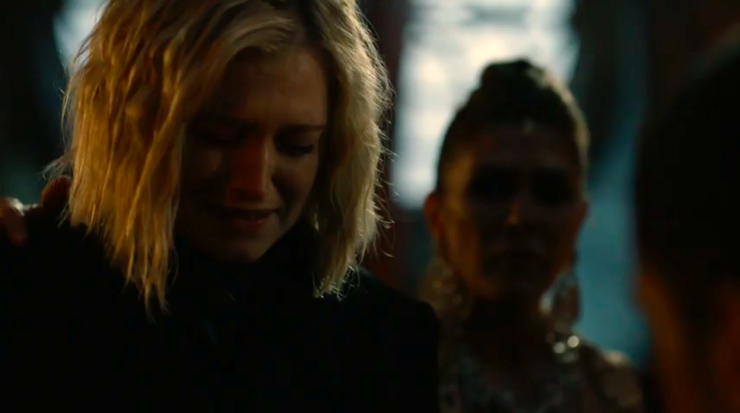
How do you shake things up after six years on air? The 100 already did a six-year time jump, so this season was all about fun with body-snatching—i.e., the cast getting to play themselves getting mind-wiped by unscrupulous digital “gods.” No one did it better than star Eliza Taylor, whose character Clarke Griffin supposedly got replaced with the bitchy Josephine Lightbourne. For a handful of episodes we were treated to Josie, who left Earth to colonize a new planet, trying to fool Clarke’s fellow survivors with her complete lack of Trigedasleng and her utter apathy about the fate of her people. Then, once Clarke regained control, she had to pretend to still be Josephine in order to take down the Lightbourne family… which had the unfortunate side effect of making both her mother Abby and adoptive daughter Madi believe that she was dead.
But in the penultimate episode, this show broke our fucking hearts when it killed off Abby. Even though her death was clearly broadcast—she literally had two important reconciliatory conversations moments before getting hit with a mind-wipe syringe—what we couldn’t have predicted was the moment that Clarke would have to confront Simone Lightbourne in her mother’s body. That scene, in which Clarke-as-Josie struggles not to collapse into incapacitating grief lest she give away that she’s undercover, and then gets an excuse for one moment of agony, was among the most devastating scenes on television this year. —Natalie
The Umbrella Academy, “The Day That Wasn’t”
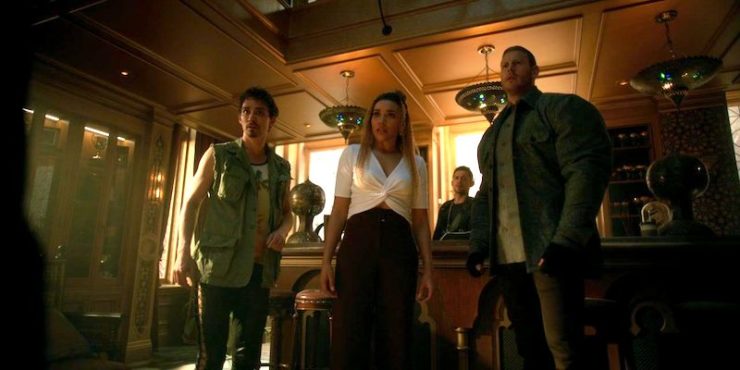
This episode did something truly awesome. See, television loves to fall back on the trope of “it was all a dream!” or “we erased that day from history via time travel!” or “this was just a story someone told, so it never really happened!” and usually it’s a cheap trick. It ruins your investment in a story because nothing that you just saw matters anymore. Except The Umbrella Academy found a way to make it matter—not via the plot, but by giving the characters a chance to engage with their emotions. During the day that doesn’t happen, the Hargreeves kids actually wind up better off: Diego helps Klaus to sober up, finding out that his brother fell in love on an accidental trip to the past and is mourning; Alison and Luther confess feelings for each other; Vanya actually learns how she has been manipulated (by her father and her boyfriend) well ahead of schedule. Then Five makes his way back to his family and rallies them to stop the Apocalypse, undoing the entire timeline, which leads to them setting off the doomsday possibilities they’re trying to avoid.
The point is that the Umbrella Academy were told they were siblings, but they were never really permitted to be a family on account of their abusive (now deceased) father. This episode shows how much better off they are are when they’re permitted to rely on each other and be vulnerable with each other. As soon as they revert to their superteam dynamic, things don’t work out. It’s possible that this episode, featuring a day that never really happened, will serve as the template for how the Hargreeveses might truly save the world—by being there for one another. —Em
Barry, “ronny/lily”
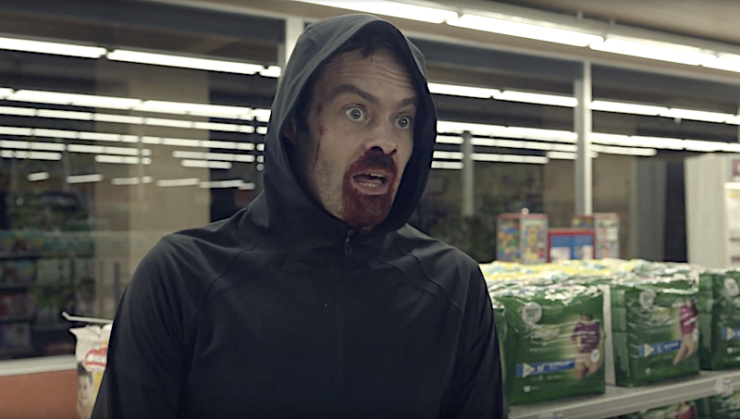
YES, Barry is usually a realistic show. However the second season’s fifth episode, “ronny/lily” stretches the boundaries of realism, as Bill Hader’s titular hitman, Barry, tries to convince a potential hit to just, like, leave (he’s trying not to kill so much) only to end up in an incredibly long and complex battle with the guy. Where it takes a turn for the surreal is when the guy’s daughter shows up, because between the increasingly surreal writing, and Hader’s expressionistic direction, there are lots of hints that Lily isn’t exactly a regular human. And while, yes, I want everything to turn into horror, I’d be especially happy if Barry turned into horror. —Leah
She-Ra and the Princesses of Power, “Mer-Mysteries”
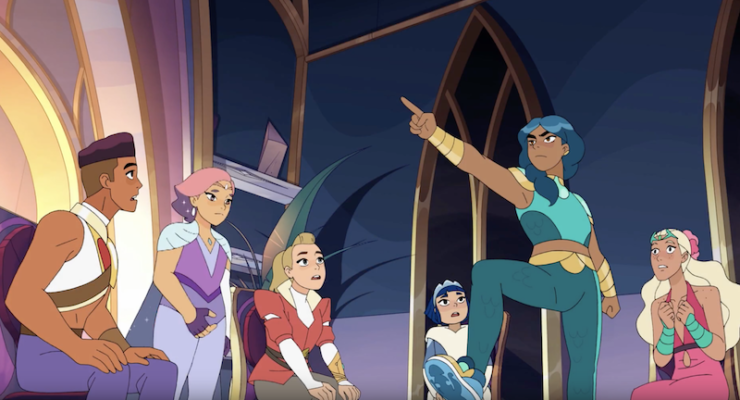
Using a murder mystery template as a jumping off point for a hilarious episode? She-Ra managed to hit on one of my favorite things for this one. (One of my favorite Doctor Who episodes is “The Unicorn and the Wasp” so I have a serious weak spot for stuff like this.) The princesses finally figure out that there’s a spy in their midst, and no one is better equipped to figure it all out than Mermista, whose favorite books are the Mermystery detective novels. Even better, this leads to the unmasking of Double Trouble—my unabashed favorite of the season—and to a terrible consequence. So a funny episode that ends up having real depth and resonance? Count me in. Count me in forever. This show just can’t stop thrilling me. —Em
The Good Place, “Chidi Sees the Time-Knife” and “Pandemonium”
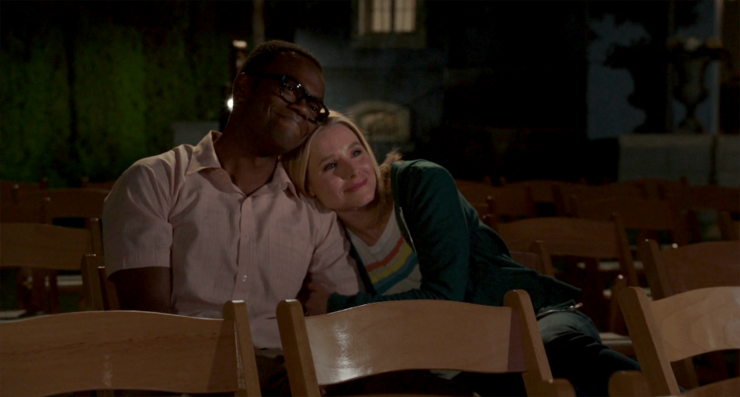
I’m tempted to just say ALL. But I’ll narrow it down a little. Since there’s nothing I love more than a broken Chidi, I’m going with “Chidi Sees the Time-Knife” because there’s a LOT of Chidi absolutely losing it, plus we’re introduced to IHOP, and “Pandemonium” because of the scene of Eleanor and Chidi sitting together and talking through the terrible choices that lay in front of them, and the way Eleanor says “legit snacc.” I mean. —Leah
The Mandalorian, “Sanctuary”
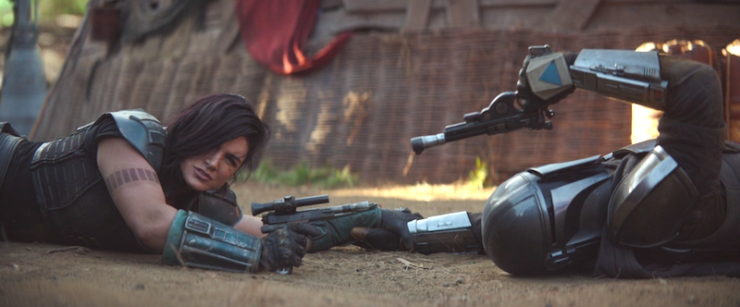
The Mandalorian arrived late in the year to steal our hearts, with a perfect grumpy Mando boy and his bouncing Baby Yoda. The fourth episode of the season had everything you could possibly want from the show: new parenting woes, a brawl that ends in friendship, a Seven Samurai send-up, Baby Yoda trying to eat another froggy, Baby Yoda playing with kids, Baby Yoda pushing ship buttons, Baby Yoda leaving his seat in the cantina to sip broth blithely as his dad fights for his life, I mean, you get the idea. There’s blue shrimp and awkward flirting between our Mando and a cool farming widow and Gina Carano is perfect.
But mostly, Baby Yoda. —Em
What We Do in the Shadows, “Werewolf Feud” and “The Trial”
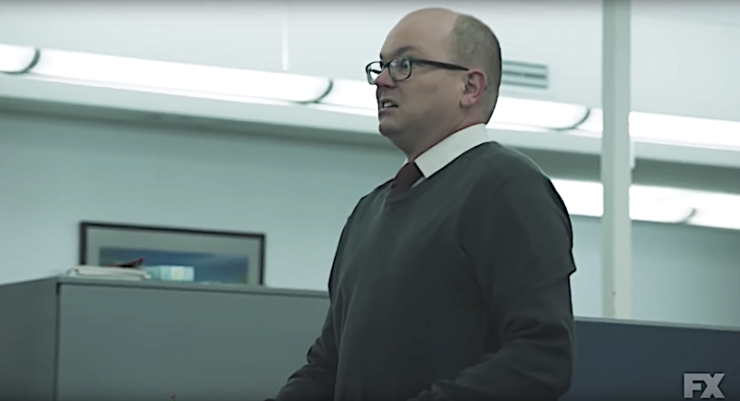
The whole season is strong, but I especially loved “Werewolf Feud” because not only is it always fantastic when the vampires tangle with the werewolves (not swearwolves), but this episode also gives a lot of screen time to two new types of vampires. One is played by Mark Proksch, the other played by Vanessa Bayer, and they are so unexpected and hilarious that they put this episode on a whole other level. Likewise “The Trial” takes what could be a pretty standard vampire parody concept—the vampires have to face a vampiric council à la Twilight—and turns it into a delightful celebration of vampires in pop culture via some of the best cameos I’ve ever seen. I don’t want to give any of them away, but, go watch this episode. —Leah
Russian Doll, “The Great Escape”
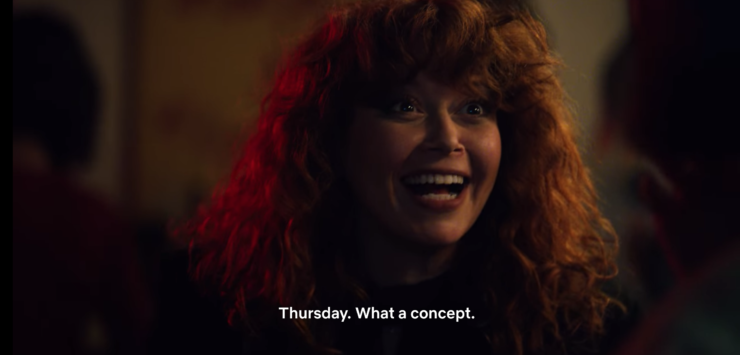
In a show that performs incredible feats of emotional acrobatics, the second episode, “The Great Escape”, is the balance beam on which it all rests. Birthday Baby Nadia has already died twice only to end up back in her friend’s bathroom. Over the course of the second episode, Nadia attempts to find out what’s happening with her—interrogating the source of the drugs she took, the people around her, even to the point of asking to be taken to Bellevue Hospital—only to die several more times over, including several trips down the stairs. It’s funny, but it’s also painfully stressful and horrific. Those of us who feel any sort of anxiety can attest to Nadia’s feelings of being trapped, of slowly losing her mind, of not knowing what’s happening to her, of worrying that no one is truly listening. Russian Doll‘s simple Groundhog Day concept spins outward into a beautiful story about the need for human connection and recognition, and it all stems on this: Nadia, the cockroach. Nadia, wanting this all to stop. Nadia wanting to be seen. —CO










